War in Sudan: how women want to influence the peace process in Geneva
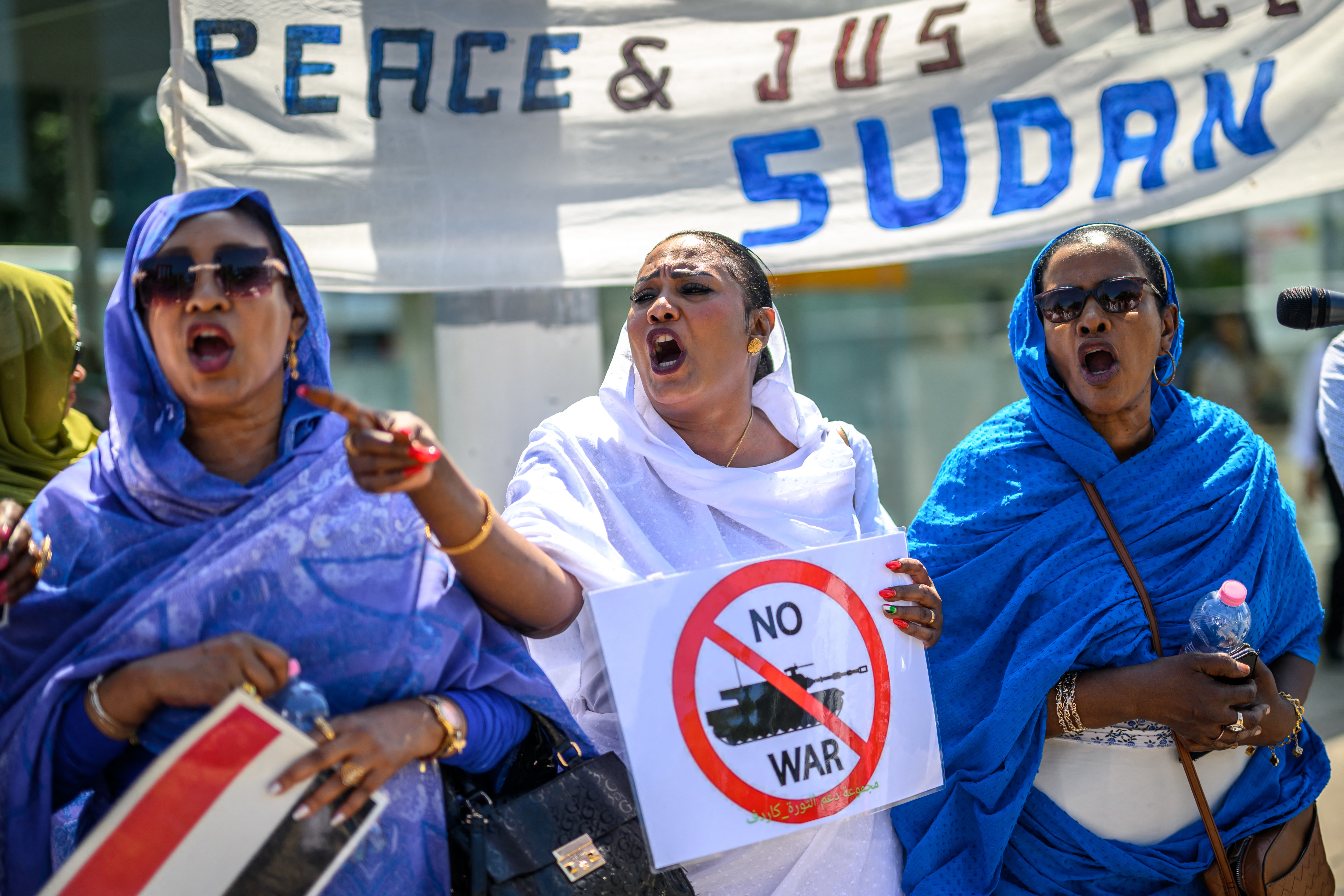
Negotiations for a ceasefire in war-torn Sudan are underway in Switzerland, with 15 Sudanese women travelling to Geneva to demand inclusion in the peace process.
For 16 months, Sudan, Africa’s third-largest country, has been ravaged by war, creating what is currently the world’s worst humanitarian crisis. Talks began in Geneva on 14 August, with the aim of increasing vital aid to the country and, ideally, securing a ceasefire.
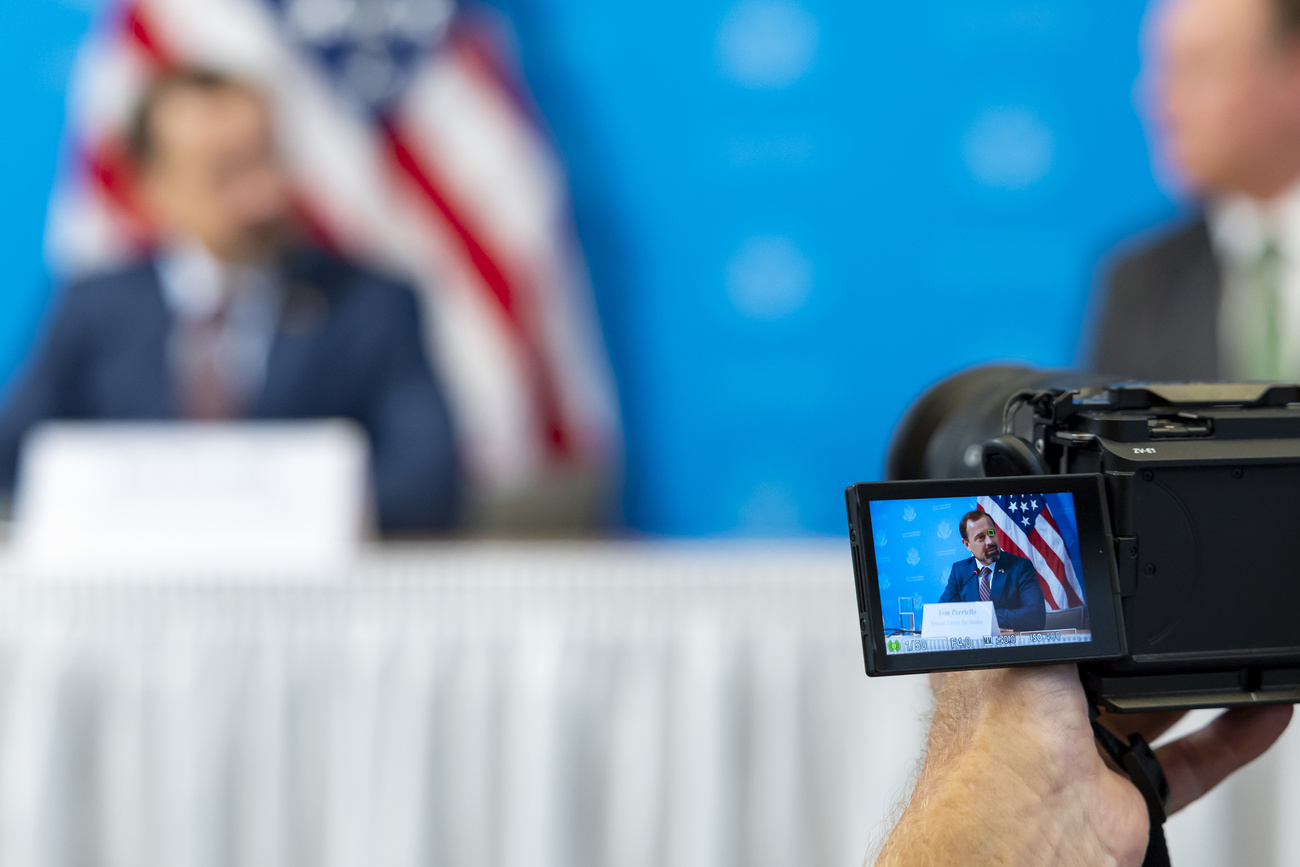
More
Sudan: everything you need to know about the Geneva negotiations
The United States invited representatives from both sides of the conflict—the Sudanese Armed Forces (SAF) and the Rapid Support Forces (RSF) militia—to a confidential location in Geneva. So far, only the RSF has attended.
This is not the first attempt to curb the armed conflict. Last year, the US organised mediation efforts in Jeddah, Saudi Arabia, which ended without success.
“This time, it has to be done properly,” says Rabab Baldo, a Sudanese peace and gender activist, at a meeting in Geneva. She adds, “Women must be part of this process, as mandated by the UN.”
UN Security Council Resolution 1325 calls for women’s equal participation in peace negotiations, conflict resolution, and reconstruction.
Women in Sudan face unique dangers
Rabab Baldo is among 15 Sudanese women activists, spanning different generations, who have come to Switzerland.
Many of them have been tirelessly working since the war began, caring for the sick and children, and sourcing medicine and food. “We have experienced everything: rape, massacres, famine,” says Baldo. “We understand the value of a ceasefire for our country. That’s why we must be present at these negotiations.”
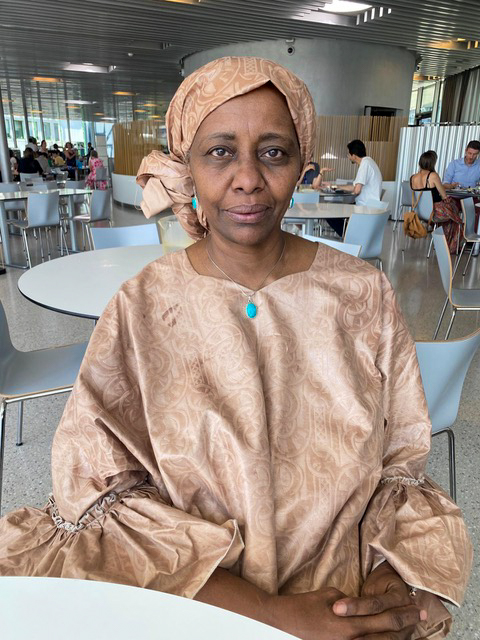
Indeed, according to the Global StudyExternal link on the Implementation of UN Resolution 1325, women’s participation in peace processes increases the likelihood of an agreement lasting at least 15 years by 35%.
Deborah Schibler, Executive Director of the Swiss NGO “FriedensFrauen weltweitExternal link” (PeaceWomen Across the Globe) emphasises, “The presence of women and other civil society actors clarifies that war affects more than just the warring parties. Women’s experiences of violence must be part of the dialogue.”
To this end, Baldo and her team have spent recent weeks drafting a peace agreement that incorporates these perspectives. Their proposal includes measures they believe are essential to ending the war, along with obligations for both sides.
The proposal also addresses the widespread sexual violence against women and the occupation of hospitals by armed forces. The UN Office for the Coordination of Humanitarian Affairs (OCHA) reports that nearly seven million women and girls in Sudan have been victims of gender-based violence.

More
Our weekly newsletter on foreign affairs
Can they influence the warring parties?
Baldo and her team aim to have these measures included in a formal agreement. In the coming days, they plan to hold separate talks with both sides, seeking common ground and identifying red lines. It’s a challenging task: “Ceasefire negotiations are typically a male domain and take place behind closed doors,” says Baldo, who also works as an international consultant for the UN Development Programme (UNDP).
Continuous networking and lobbying are therefore essential. “If the parties realise that women are crucial to the peace process and the country’s security, we stand a good chance,” Baldo asserts.
Sudan has been plagued by armed conflicts and civil wars for decades.
In 2011, South Sudan seceded following a referendum. Negotiations on Sudan have already taken place in Switzerland: a ceasefire for the Nuba Mountains was signed on the Bürgenstock in 2002.
As was the case then, the current talks are taking place at the initiative of the US government. Switzerland is co-hosting the talks with Saudi Arabia. The UN, the African Union, Egypt and the United Arab Emirates are also taking part as observers. They are expected to last until August 24.
Two months after the Ukraine conference on the Bürgenstock, Switzerland is once again hosting important international negotiations.
She speaks from experience: in the early 1990s, Baldo was part of the Sudanese peace process in eastern Sudan and played a key role in ensuring that women’s voices were included in the Comprehensive Peace Agreement.
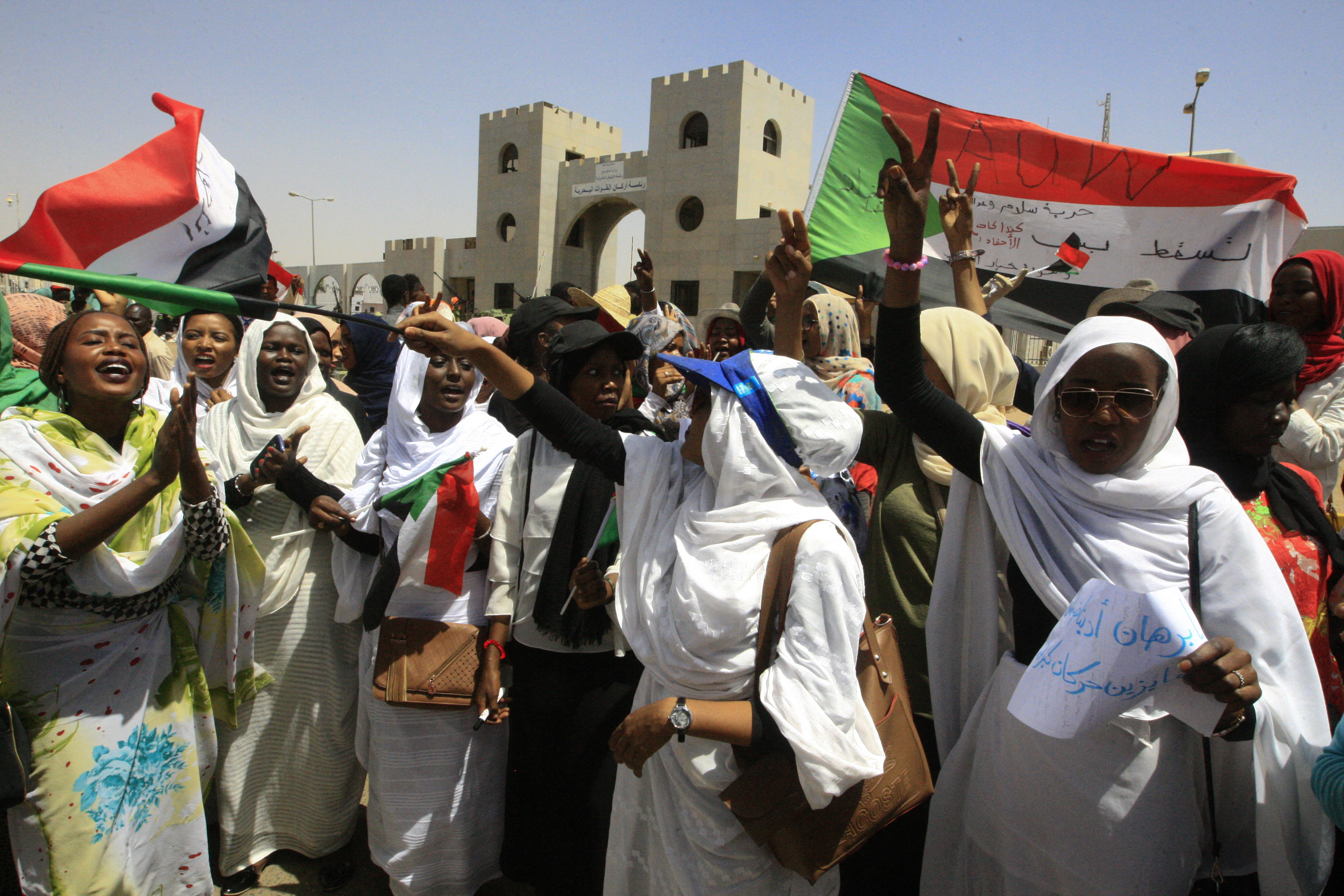
Waiting for both sides
The women’s team in Geneva has yet to start their planned work, as only representatives from the RSF have arrived. To avoid appearing biased, the activists plan to wait until the national army also attends, which they hope will happen soon.
In the meantime, the Sudanese women remain in close contact with US envoys, offering technical support. Switzerland, as host, has kept a low profile. “We hope to engage in dialogue with the Swiss authorities and gain their support for women’s participation in the negotiations,” says Baldo. The fact that the group’s visas were issued quickly and without fuss is a positive sign.
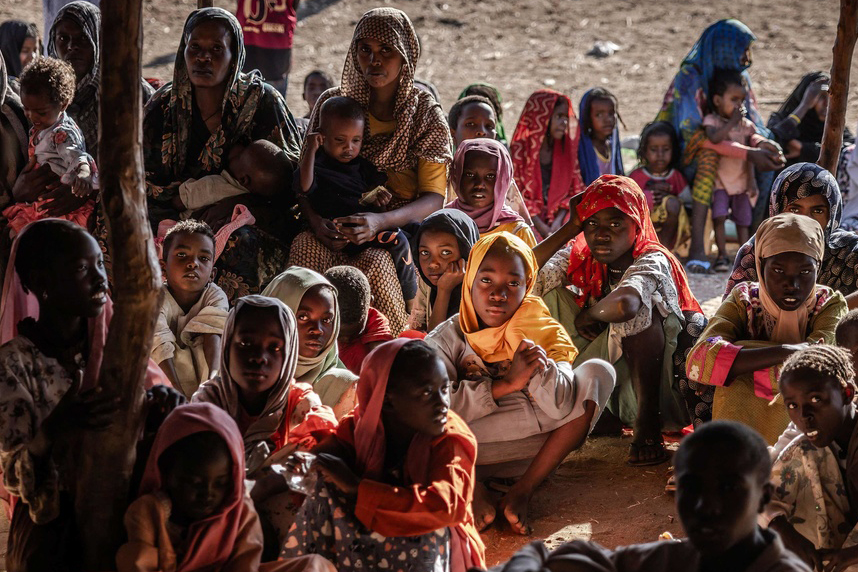
More
Swiss Solidarity collects donations for Sudan
External linkPositive signs for the talks?
Roman Deckert, a Geneva-based expert who has worked in and with Sudan for over 30 years, sees this as a positive indication. “It shows that Switzerland wants to facilitate their participation,” he says. He adds that Switzerland’s role as host, given its relative neutrality in this conflict, is likely helpful for the negotiations. While the US is the driving force this time, he doesn’t rule out the possibility of Switzerland becoming more diplomatically involved later.
Deckert remains cautious about the prospects for a ceasefire agreement. Baldo also prioritises the creation of humanitarian corridors across front lines to deliver crucial aid: “Twenty-five million people in Sudan are suffering from hunger due to the war, nearly half the population.
Over 10 million have been displaced.” Baldo views the Geneva talks as the start of a complex process that could take years. Yet, she remains determined: “We have come to Geneva to make a difference, and we will not leave without putting our concerns on the table.”
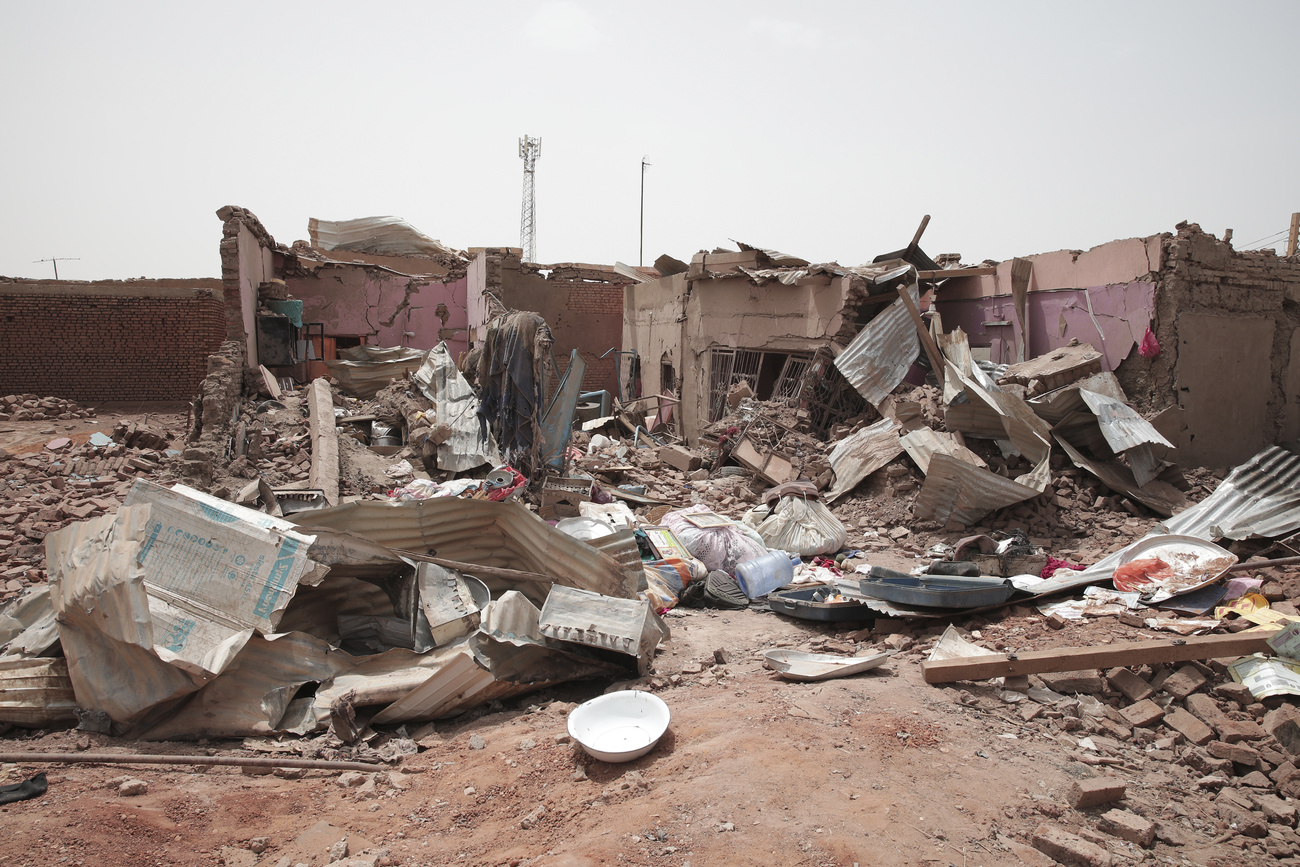
More
Sudanese in Switzerland join forces to highlight ‘ignored’ war
Edited by Giannis Mavris/adapted with DeepL/amva

In compliance with the JTI standards
More: SWI swissinfo.ch certified by the Journalism Trust Initiative








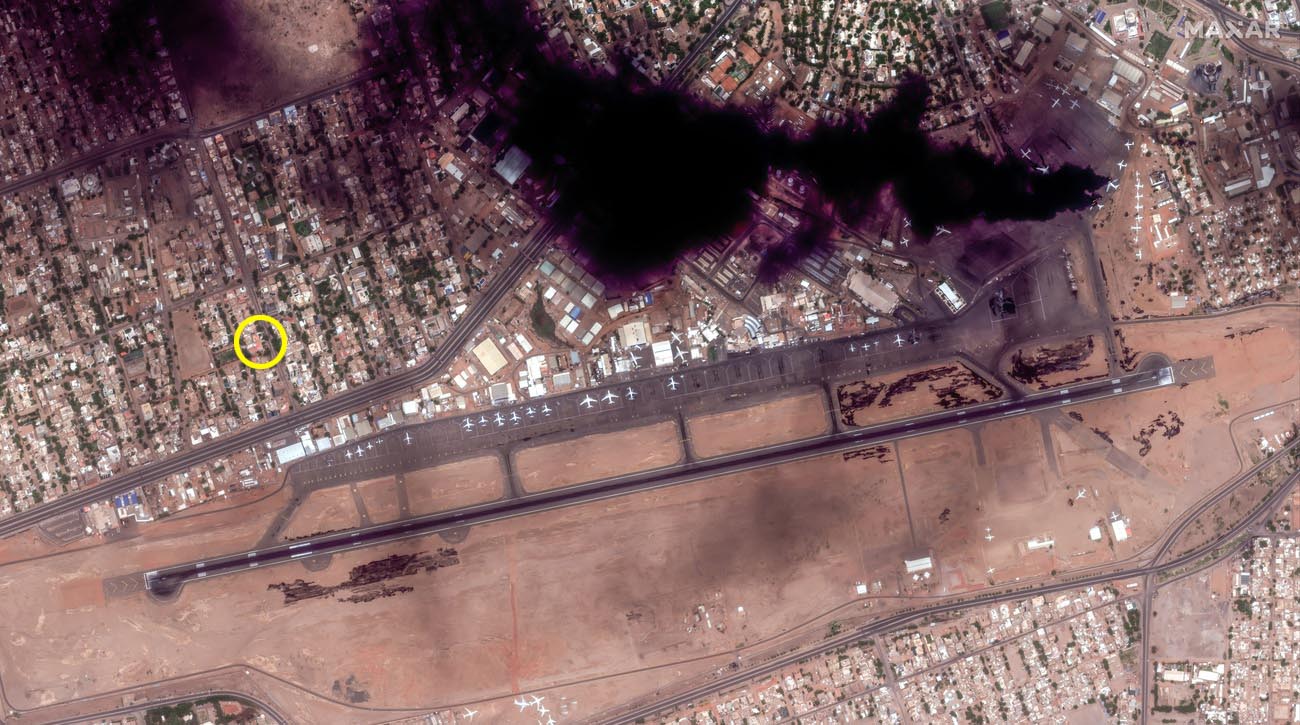
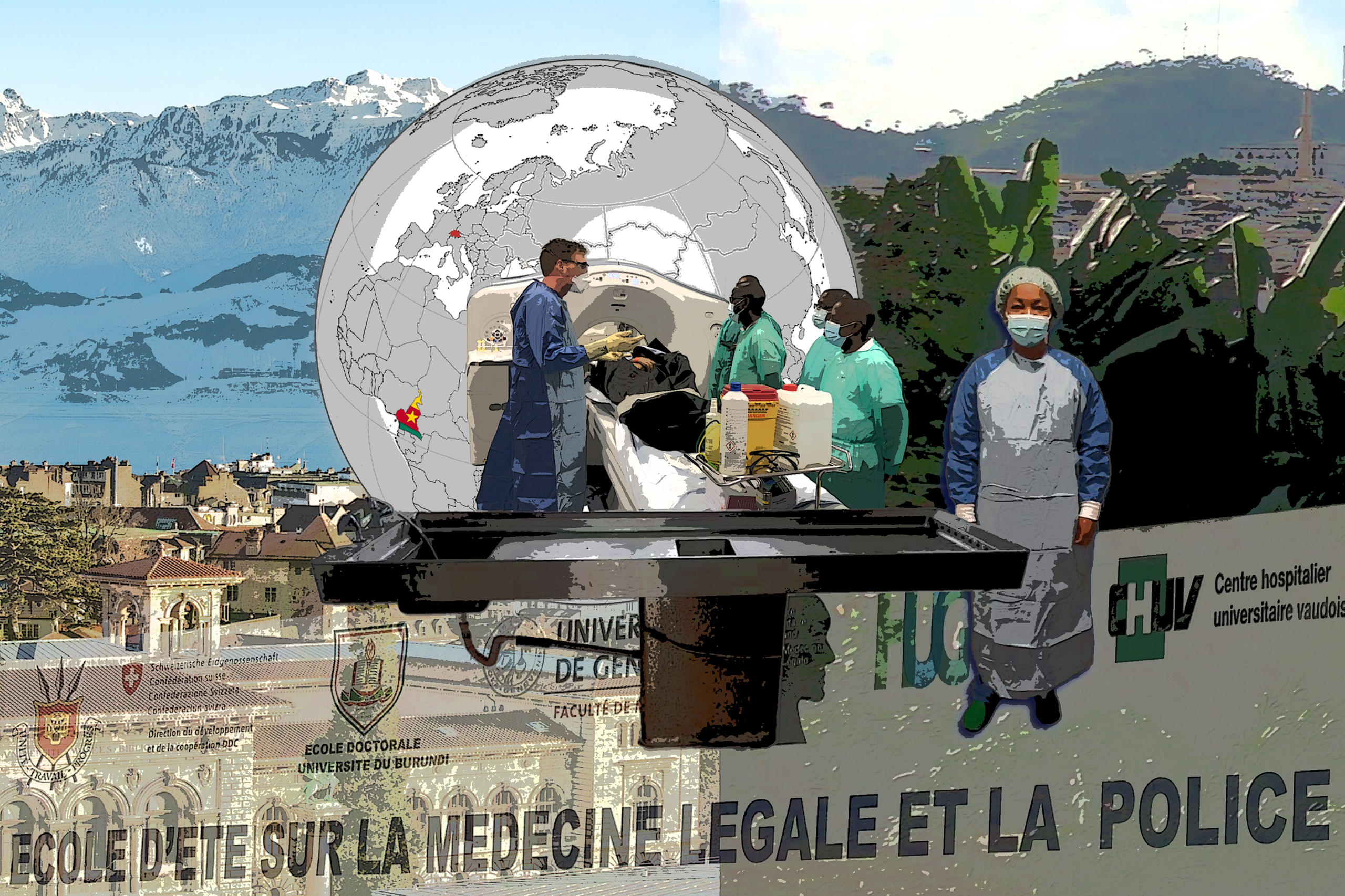
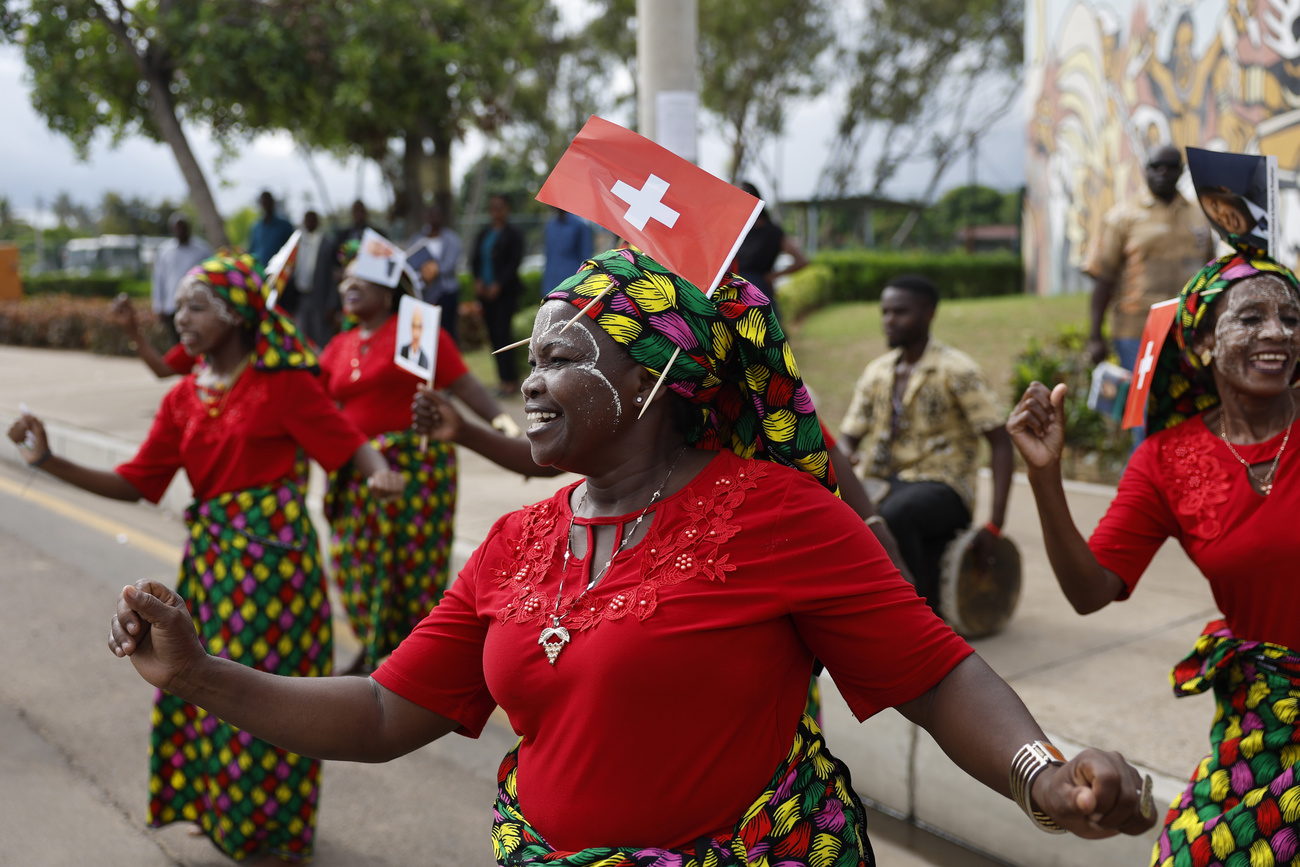
You can find an overview of ongoing debates with our journalists here . Please join us!
If you want to start a conversation about a topic raised in this article or want to report factual errors, email us at english@swissinfo.ch.